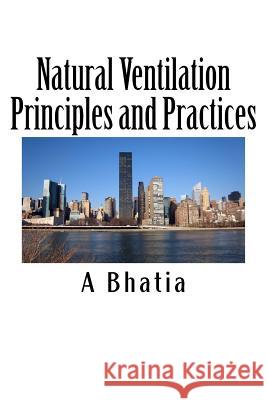Natural Ventilation Principles and Practices: HVAC e-Book » książka
Natural Ventilation Principles and Practices: HVAC e-Book
ISBN-13: 9781502771902 / Angielski / Miękka / 2014 / 86 str.
Natural ventilation refers to the process of exchanging warm building air for cooler outside air without the use of energy-consuming mechanical devices, such as fans and air conditioners. With an increased awareness of the cost and environmental impacts of energy use, natural ventilation has become an increasingly attractive method for providing acceptable indoor environmental quality and maintaining a healthy, comfortable, productive indoor climate. In favorable climates, natural ventilation can be used as an alternative to air-conditioning systems, saving 10%-30% of total energy consumption. Natural ventilation is not always as simple as just providing multiple operable windows in a building. Wind patterns specific to the site and the building design and its arrangement play a vital role. Though care must be taken to avoid having a wind tunnel effect in areas of the building; this obviously provides an undesirable effect of an excessively windy environment, especially a problem if paperwork is carried out in the area. This 4-hour e-book outlines the basic principles underlying natural ventilation, and explains how best to proceed with a specific design. It is not intended to be a textbook of natural ventilation; the main aim is to assist designers to quickly establish how their building may be naturally ventilated. This course is aimed at Mechanical and HVAC engineers, Architects, Building designers, Energy Auditors, Facility managers, Property & Estate managers, Operational & Maintenance Personnel, and General Audience. This course includes a multiple-choice quiz at the end, which is designed to enhance the understanding of the course materials.
Zawartość książki może nie spełniać oczekiwań – reklamacje nie obejmują treści, która mogła nie być redakcyjnie ani merytorycznie opracowana.











